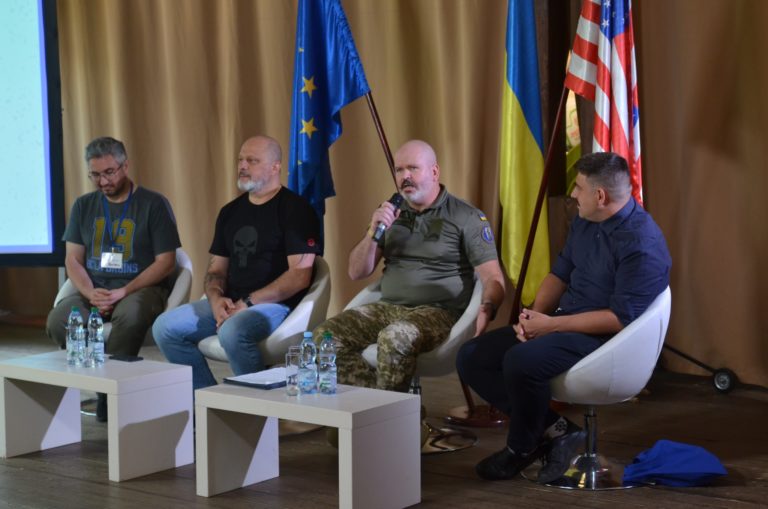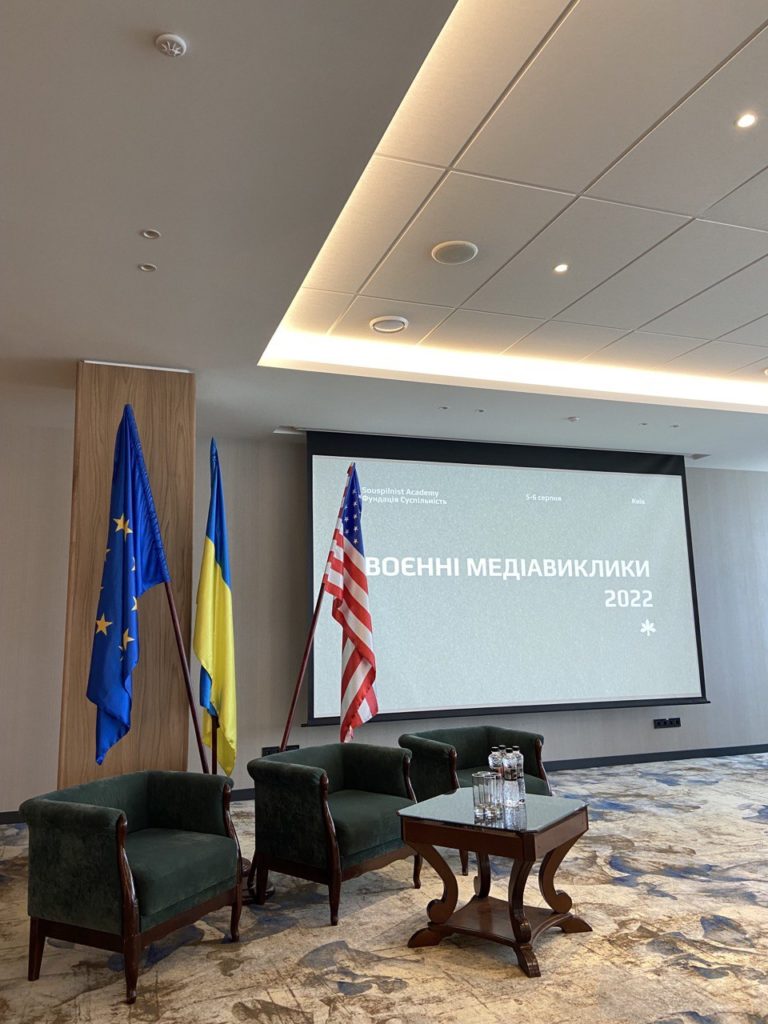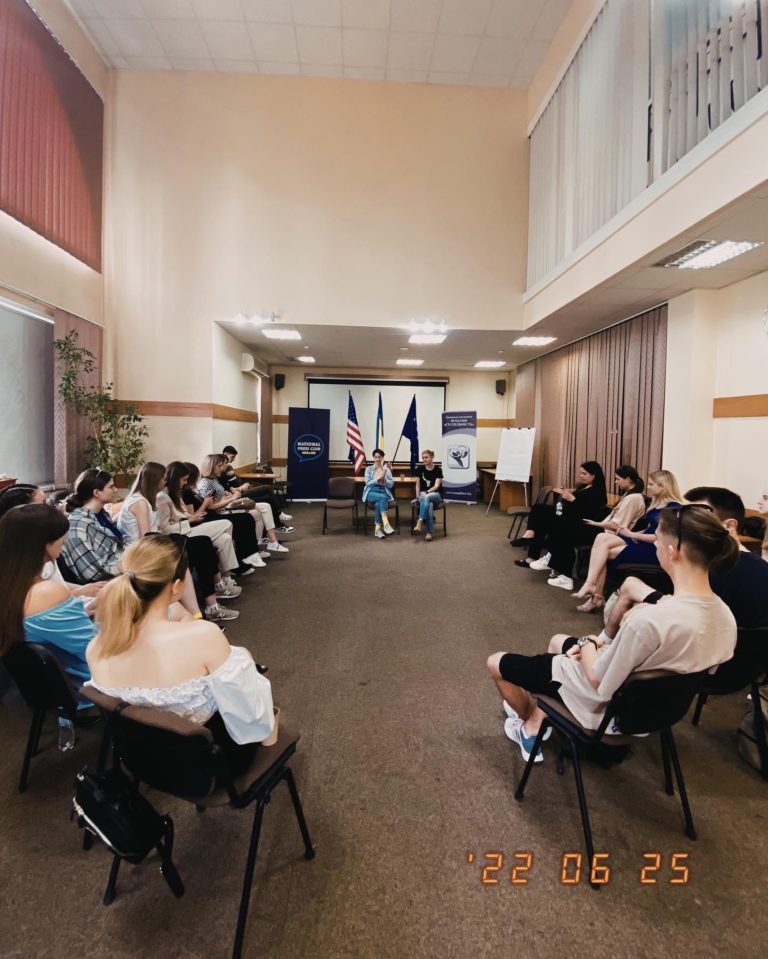One of the main challenges for the Public Broadcaster in 2021 was holding a transparent competition to elect the UA:PBC’s chairman of the board. At the end of April, the supervisory board elected a new head, Mykola Chernotytskyi, a former UA:PBC board member; on May 14, he is to replace Zurab Alasania who led from 2014 to 2021.
How it panned out and how to prevent outside interference in the election of the chairman of the board, what vector of development the Public Broadcaster will now choose and how to continue to effectively implement the public broadcasting strategy in Ukraine adopted for three years – in the online expert discussion “Effective ways of implementing UA:PBC’s development strategy in Ukraine”, held on April 30.
The discussion was attended by Mykola Chernotytskyi, the newly elected UA:PBC chairman, Svitlana Ostapa, chairman of the supervisory board of UA:PBC, Zurab Alasania, chairman of the board of UA:PBC in 2014-2021, Yevhen Hlibovystkyi, Vadym Miskyi, Oleksiy Kharchenko, members of the supervisory board of UA:PBC, Nataliia Lyhachova, editor-in-chief at Detector Media, and Nataliia Humeniuk, head of Public Interest Journalism Lab.
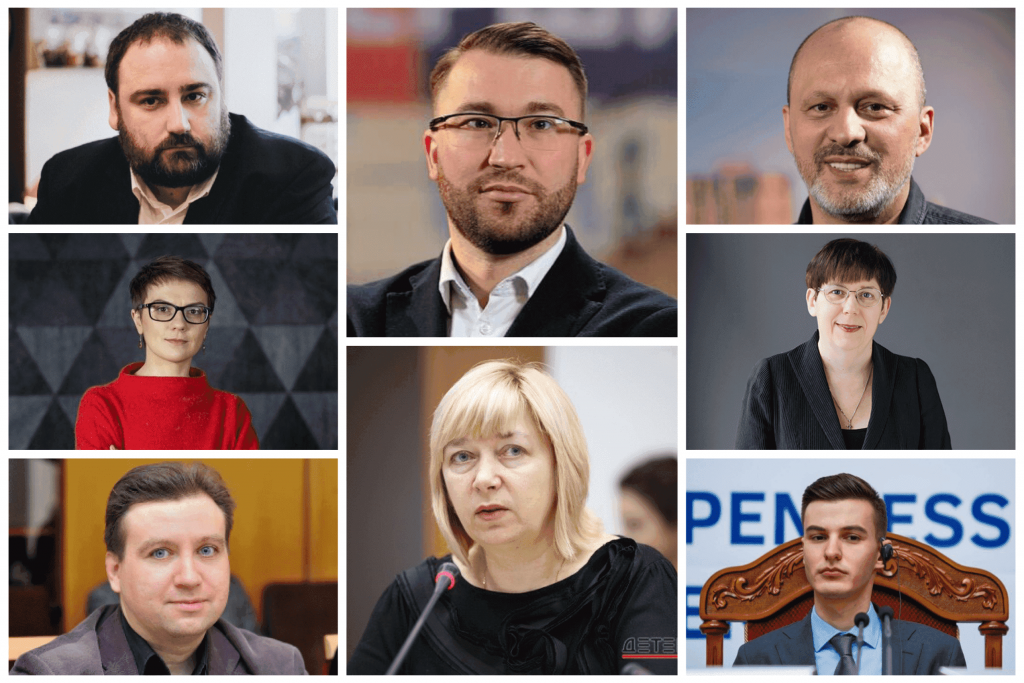
What does the program of the new UA:PBC head include?
According to Svitlana Ostapa and Zurab Alasania, the election of the new chairman of the board was held as transparently as possible.
Four candidates made it to the final stages of the competition, with the rest tossed out due to failure to comply with the application rules and due to bad practice, namely, two candidate programs contained signs of plagiarism, from the same source, to boot.
“Until the last minute, no one could even say that this or that candidate would be (the new chairman of the board – ed.). This means that the competition was held not only transparently and openly, but also assertively,” said Alasania.
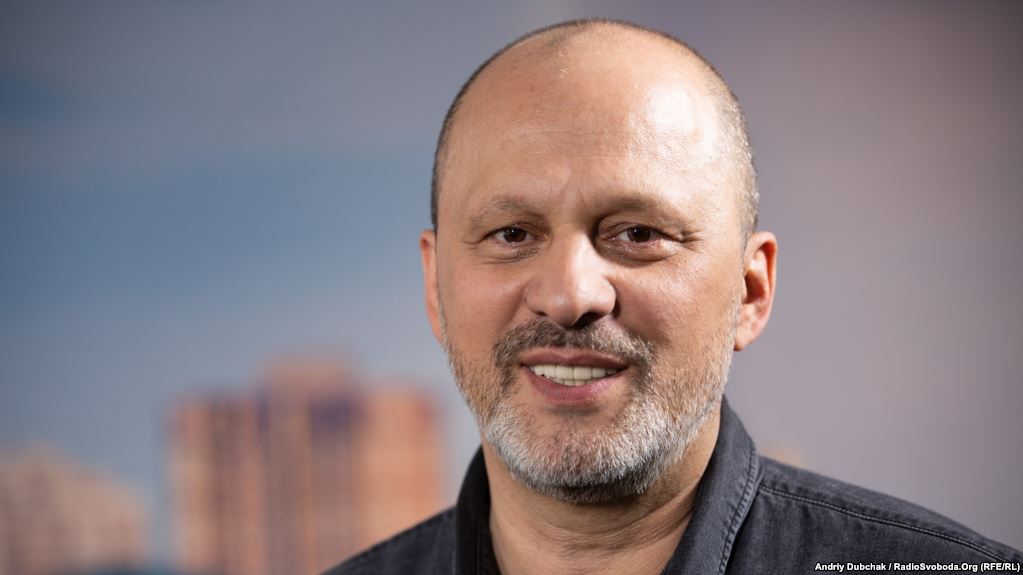
Zurab Alasania
The Public Broadcaster’s development strategy is in force until the end of 2022. Hence, UA:PBC will continue working within an established framework of goals.
Svitlana Ostapa noted that, talking about public broadcasting, those from the outside mostly expect results from UA:First, such as high ratings, new own content, forgetting that it is a very large company, and one cannot throw all their energies on one channel.
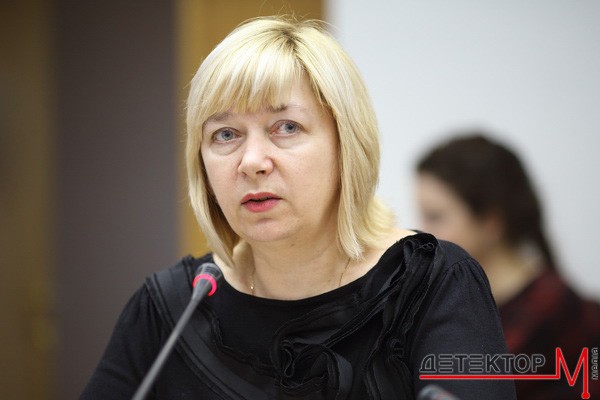
Svitlana Ostapa
In his program, Chernotytskyi, specifically proposed to update and expand the concept of regional broadcasting.
“Not only expand broadcasting capacity, but also geography. It suggests that each large ATC, large regional center have our correspondents, roughly speaking, outlets that could quickly transmit information from those cities. It is linked to decentralization reform,” said Svitlana Ostapa.
Mykola Chernotytskyi told the participants that his program includes developing the work with new audiences and strengthening the digital component. Also, one of the tasks is to form an understanding in society that UA:PBC is not only UA:First, but also 23 regional channels, radio, a digital platform, and an orchestra.
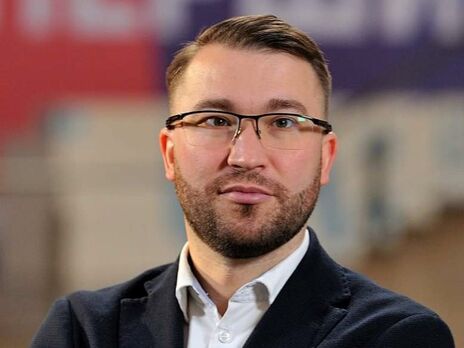
Mykola Chernotytskyi
“We should increase our total audience, take systematic action to increase production of quality content. UA:PBC should become a source of confidence (for Ukrainians, ed.). I’d like to make the story of high-quality information content happen so that the decision-makers have access to information enabling them to understand things as deeply as possible,” said Mykola Chernotytskyi.
He informed that UA:PBC does not plan to significantly expand the list of programs in the near future:
“First, we’ll have made those we currently have ideal, and only then will we expand our broadcasting capacity.”
Challenges for UA:PBC and possible solutions
One of the challenges for the Public Broadcaster is the issue of attracting a new audience and methods of assessing the level of impact.
Yevhen Hlibovytskyi is convinced that UA:PBC cannot be assessed using private sector criteria, e.g. ratings.
“Every time we use the word ‘ratings,’ we amplify a political technology playing against the Public Broadcaster,” said Hlibovytskyi.
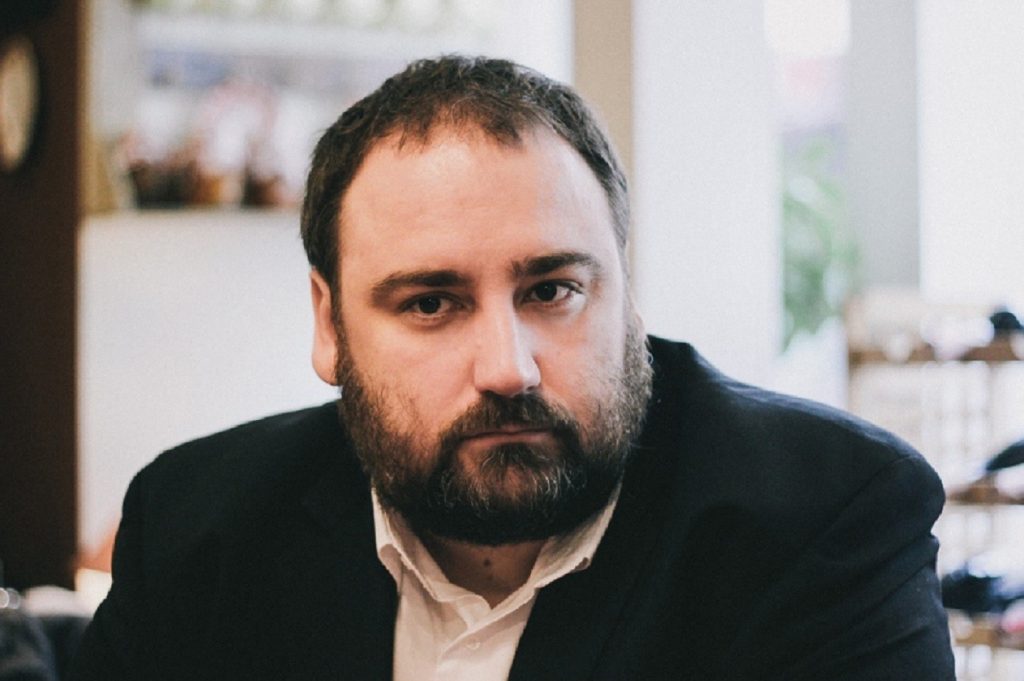
Yevhen Hlibovytskyi
According to him, UA:PBC provides broadcasting for those not satisfied with the private sector.
“I’d just remove ratings from the agenda. Instead, I’d talk about content quality, or about whether UA:PBC is proactive or reactive with regard to changes in society. I think it’s very important to not substitute the conversation about social transformation with ratings,” said Yevhen Hlibovytskyi.
According to Nataliia Lyhachova , ratings make a media popular, not influential.
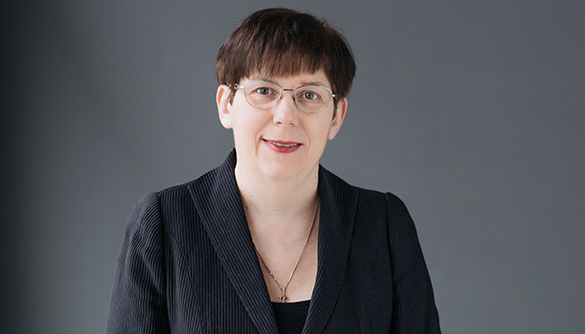
Nataliia Lyhachova
“UA:PBC should indeed attract audiences that do not watch it now. It’s very important. We need the Public Broadcaster to help society grow and mature, so that it has more influence over the government,” said Lihachova.
She added that the Public Broadcaster now lacks a true vision of television.
“So far, we haven’t found a manager who’ll make UA:PBC a television. I mean, he’ll get the program grid right, make a talk show that everyone will say “wow”. …I now hope that Mykola Chernotytskyi will have the strength to do that,” said Lyhachova.
Vadym Misky agreed that it is necessary to look for genuine TV people. He cited the example of the Ukrainian Radio team that succeeded in doubling their audience since 2017.
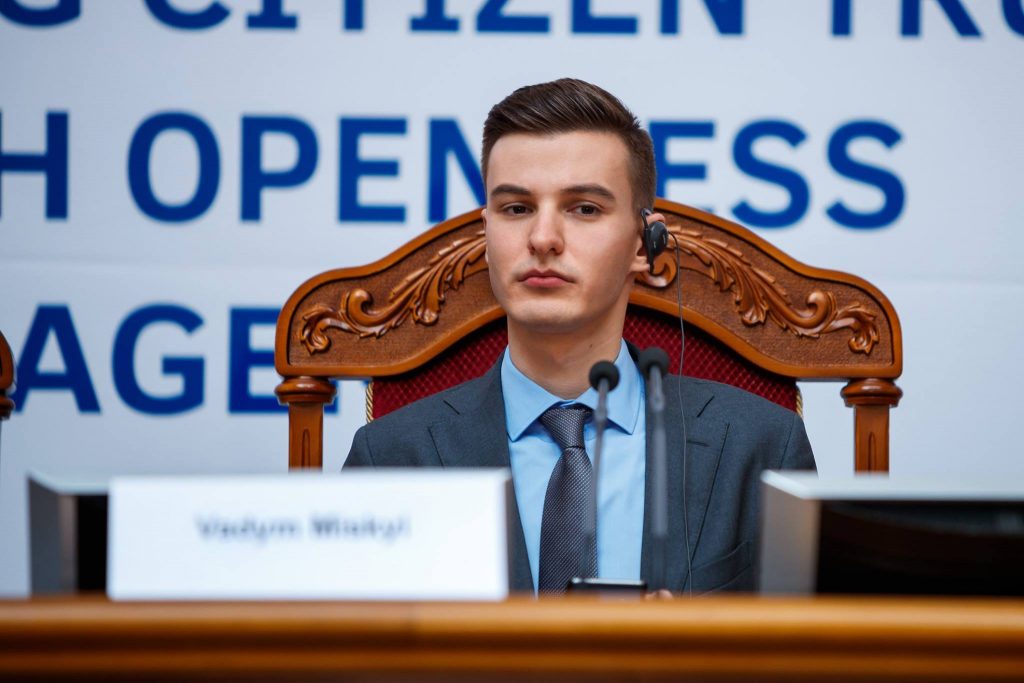
Vadym Misky
“They made their radio radio-like. Without any budgets. So it appears to me that we now have conditions for success on television. We need to find people able to breathe new life into it,” said Misky.
Also, another major challenge for UA:PBC is establishing high-quality dialogue with the authorities.
“Ukraine’s authorities view UA:PBC as an enemy, as an opponent. This is not the case in any democratic country. They understand that public broadcasters are that obligatory fourth power. Our authorities do lack this understanding: seeing UA-PBC as a partner, not an opponent. A partner that can criticize, make sharp journalistic investigations, but it’s normal,” said Nataliia Lyhachova.
Watch the full discussion here:
The event was organized by Souspilnist Foundation with the support of Internews Ukraine, Detector Media, the Independent Media Council, and with support from the Media Program in Ukraine.
Photos: Radio Svoboda, UA:PBC, Detector Media, Facebook pages.
